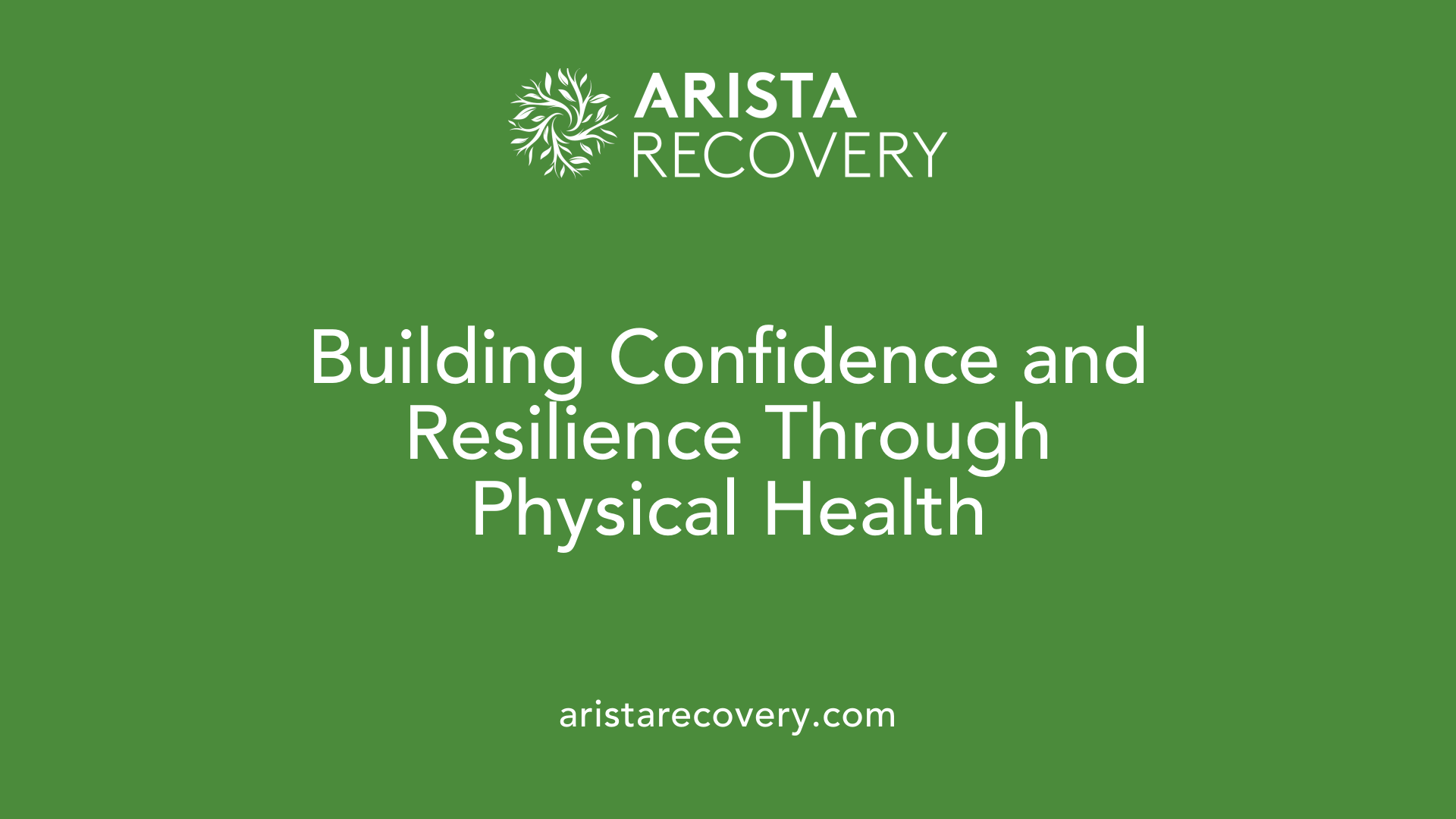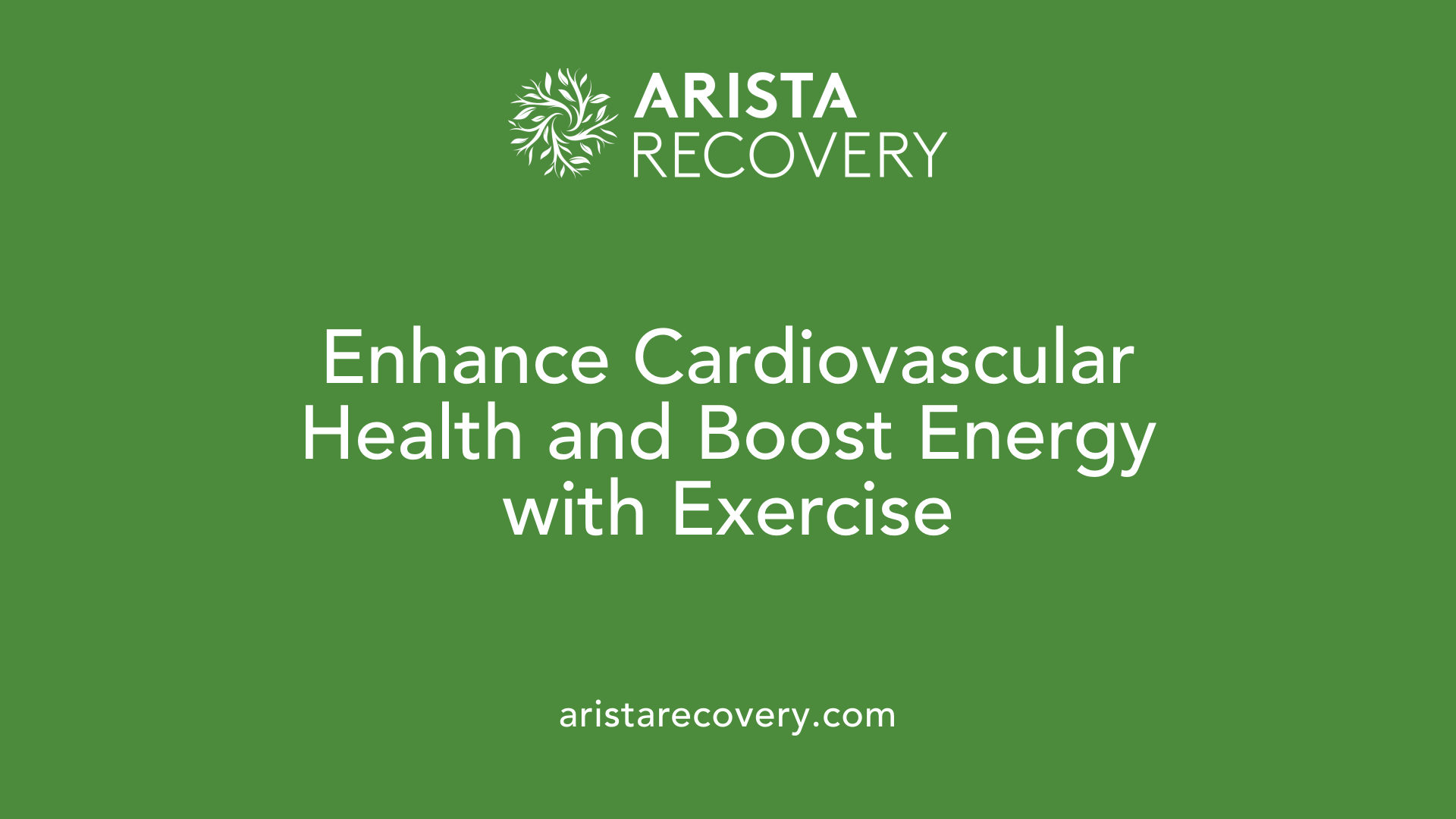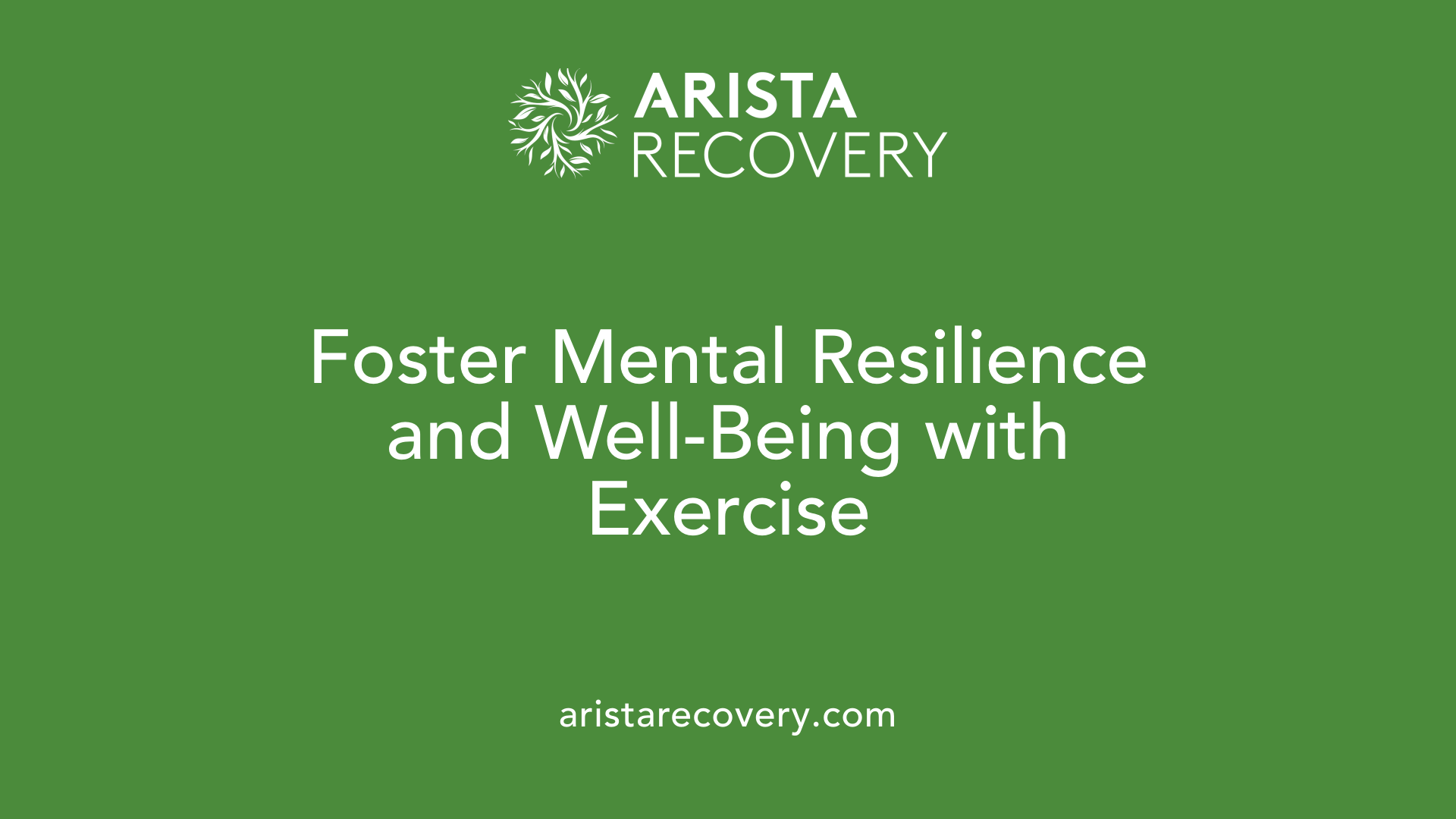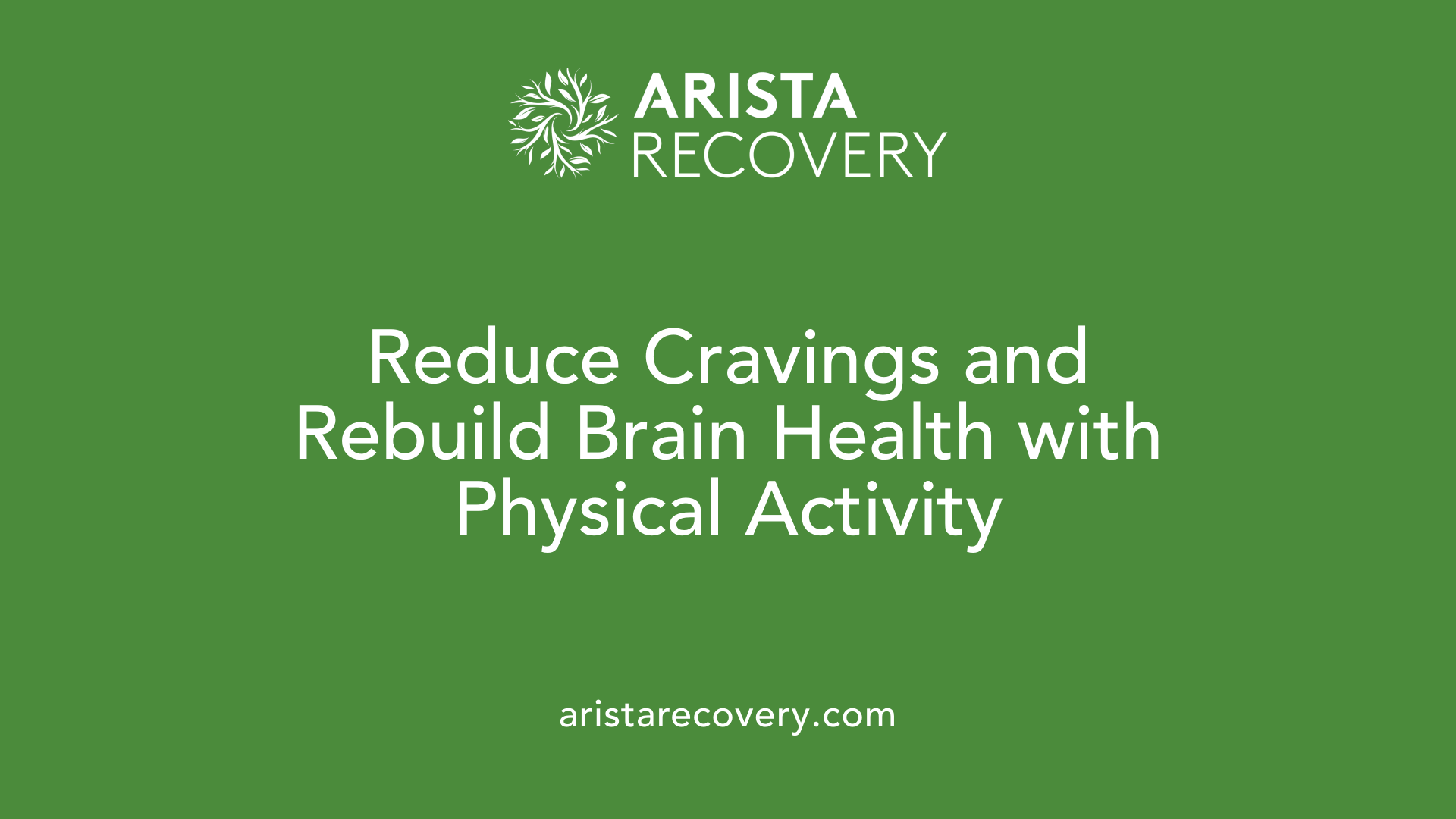How exercise supports physical and mental health in recovery

Building a Foundation for Lasting Recovery
Recovery from addiction and mental health challenges is a multifaceted journey that benefits immensely from a holistic approach. Among the most accessible and effective tools in this process is regular physical exercise. Exercise not only bolsters physical health but also plays a crucial role in supporting mental well-being, resilience, and long-term sobriety. By exploring the various mechanisms and strategies through which physical activity aids recovery, this article underscores the importance of integrating exercise into recovery protocols.
The Integral Role of Physical Wellness in Recovery

Why is physical wellness integral to recovery?
Physical wellness is a crucial component of the recovery process because it addresses both the physical and mental aspects of health. Regular physical activity helps repair the damage caused by substance use, such as cardiovascular and metabolic issues, and promotes neuroplasticity—the brain’s ability to heal and adapt. Engaging in activities like walking, yoga, or strength training releases mood-enhancing chemicals like endorphins, serotonin, and dopamine, which alleviate feelings of depression and anxiety.
Maintaining a balanced diet rich in omega-3 fatty acids, antioxidants, and high-fiber foods supports brain health, stabilizes mood, and reduces inflammation—factors often disrupted by substance abuse. Adequate sleep, fostered through exercise and good hygiene, further enhances emotional stability and cognitive function. Additionally, physical wellness includes taking care of one’s medical needs, which reinforces a holistic recovery approach.
Fostering physical wellness goes beyond mere health; it builds confidence, resilience, and a sense of control. Goals related to fitness can boost self-esteem and self-efficacy, encouraging individuals to stay committed to their recovery journey. Overall, by nurturing the body, individuals lay a solid foundation for emotional healing, reduce relapse risk, and improve their quality of life.
How does physical health impact mental health and overall recovery?
Physical health directly influences mental well-being and the overall success of recovery. When the body is healthy, it’s easier to manage stress, cope with cravings, and deal with emotional challenges associated with sobriety. Regular exercise increases brain chemicals like endorphins, serotonin, and dopamine, which help stabilize mood and combat symptoms of depression and anxiety.
Physical activity also improves sleep quality, a critical factor in mental health. Better sleep enhances cognitive functions such as attention, memory, and decision-making, all of which are essential during recovery. Moreover, engaging in physical routines fosters social connections through group activities, reducing feelings of isolation that often accompany mental health issues.
Overall, integrating physical wellness into recovery not only supports physical health but also amplifies mental resilience. It encourages positive habits, enhances brain function, and creates a sense of purpose and self-efficacy—crucial elements for sustained sobriety and emotional stability.
How Exercise Benefits Physical Health in Recovery

How does exercise benefit physical health during recovery?
Exercise plays a vital role in supporting physical health throughout the recovery process. One of the primary benefits is muscle strengthening, which helps rebuild weakened muscles caused by illness, injury, or prolonged inactivity. Strengthening muscles not only improves physical stability but also reduces the risk of future injuries.
In addition, engaging in regular physical activity enhances cardiovascular health. Exercises like walking, cycling, and swimming improve heart and lung function, leading to better circulation and oxygen delivery throughout the body. These improvements support overall energy levels and endurance, which are essential during recovery.
Sleep quality is another crucial aspect that exercise positively influences. Regular activity helps regulate sleep patterns, making it easier to fall asleep and stay asleep, which is vital for tissue repair, hormone balance, and immune function. Better sleep contributes to faster healing and increased resilience.
Exercise also supports the body's ability to repair damage caused by illness, injury, or chronic conditions. It stimulates tissue regeneration, promotes healthy cell function, and strengthens immune responses. This regenerative process is fundamental for restoring physical health.
Furthermore, physical activity reduces long-term health risks such as cardiovascular disease, diabetes, and osteoporosis. It encourages healthy weight management, improves metabolic processes, and fosters overall bodily resilience.
Beyond physical benefits, exercise reduces stress and anxiety, which can impair immune function and slow recovery. Establishing a routine of enjoyable physical activity can provide mental stability, motivation, and a sense of accomplishment, helping maintain progress and prevent setbacks.
Incorporating tailored exercise programs into recovery protocols ensures safe and effective physical health improvements. Overall, staying active accelerates healing, enhances physical resilience, and supports sustained well-being during recovery stages.
The Mental Health Boost: How Exercise Fights Depression and Anxiety
What are the mental health benefits of exercise during recovery?
Exercise plays a crucial role in supporting mental health, especially during recovery from mental health issues or substance use disorders. When engaging in physical activity, the brain releases mood-enhancing chemicals like endorphins, serotonin, and dopamine. These natural chemicals help to decrease feelings of stress, anxiety, and depression, promoting a more balanced mental state.
In addition to chemical effects, exercise can significantly improve sleep quality. Better sleep helps regulate mood and boosts energy levels, making daily challenges easier to manage. Cognitive functions such as focus, memory, and decision-making are also enhanced through regular physical activity, which is vital for mental clarity and emotional resilience.
Routine and stability are critical components of recovery. Incorporating exercise into daily schedules creates a structured environment that fosters discipline and consistency. This stability reduces the likelihood of relapse and encourages long-term healthy habits. Participating in group exercises or community sports not only provides social support but also boosts motivation, belonging, and personal connection.
Overall, exercise builds a sense of control and self-esteem, reinforcing positive self-image and fostering resilience. These combined benefits make physical activity an essential and powerful tool in the journey to mental wellness and sustained recovery.
Supporting Mental Well-being and Resilience Through Exercise

How does exercise support mental well-being and resilience?
Exercise plays a vital role in enhancing mental health and building resilience by fostering a range of biological and psychological processes. One of the primary ways it achieves this is through promoting neuroplasticity and neurogenesis—the brain's ability to reorganize itself and grow new neural connections. Regular physical activity stimulates brain regions involved in learning, memory, and emotional regulation, helping the brain adapt to stress and recover from trauma.
A critical component of exercise's mood-enhancing effects involves the release of feel-good chemicals such as endorphins, serotonin, dopamine, and brain-derived neurotrophic factor (BDNF). Endorphins are natural painkillers that create feelings of euphoria, often referred to as the
Exercise as a Catalyst in Recovery from Addiction and Substance Use Disorders

How can exercise aid in recovery from addiction and substance use disorders?
Exercise plays a multifaceted role in supporting recovery from addiction and substance use disorders. One of its primary benefits is the reduction of cravings. Physical activity stimulates the production of neurotransmitters such as dopamine, endorphins, and serotonin, which are crucial for mood regulation and reward processing. These neurochemical boosts can help diminish the intense desire for substances, especially opioids, cannabis, or stimulants, making relapse less likely.
Apart from craving management, exercise promotes detoxification of the brain’s reward system. Substance use often damages neural pathways related to pleasure and motivation. Consistent physical activity supports neuroplasticity, helping rebuild these neural circuits and restore healthy brain function.
Creating a routine is another vital aspect of exercise in addiction recovery. Regular physical activity provides structure to daily life, fills leisure time with productive pursuits, and offers a sense of purpose. This routine not only distracts from cravings but also reinforces discipline and stability, which are essential for sustained sobriety.
Furthermore, exercise enhances cognitive functions such as attention, decision-making, and memory. These improvements can help individuals better manage cravings, make healthier choices, and develop effective coping strategies. It also boosts self-esteem and body image, fostering a more positive self-perception, which is often challenged during recovery.
Engagement in group exercises or team sports fosters social connections and builds support networks. The sense of community and shared purpose strengthens resilience and provides emotional support, both of which are critical for long-term recovery success.
Overall, integrating physical activity into recovery programs offers a comprehensive approach to overcoming addiction. It addresses emotional, cognitive, and social aspects, helping individuals establish a balanced and healthier lifestyle.
Strategies for Incorporating Exercise into Recovery Routines
What strategies can help incorporate exercise into recovery routines?
Successfully integrating exercise into recovery routines involves thoughtful planning and gradual adjustment. Starting with low-impact activities such as walking, stretching, yoga, or housework makes it easier for beginners and reduces the risk of injury or burnout.
Building a routine around enjoyable activities helps sustain motivation and makes exercise a positive part of daily life. Setting realistic goals—such as aiming for 20-30 minutes of activity a few times a week—and progressively increasing intensity or duration encourages steady progress.
Consistency is essential. Establishing a regular schedule, like morning walks or lunchtime yoga, promotes habit formation. Incorporating exercise into existing routines helps create stability and prevents neglect due to busy schedules.
Social support plays a vital role. Participating in group activities, team sports, or partner workouts fosters accountability and creates a sense of community. Activities like swimming, dancing, or outdoor hikes not only enhance mood but also strengthen social bonds.
Variety in exercise types—such as alternating aerobic workouts, strength training, or mindfulness practices like tai chi—can prevent boredom and target different aspects of mental health.
Stress management techniques, proper nutrition, and adequate sleep complement exercise’s benefits. Regular physical activity stimulates brain reward pathways, releases feel-good chemicals, and improves self-esteem, all of which are beneficial for sustained recovery and mental resilience.
Rough Recovery Strategies: Guidelines and Long-term Maintenance
What are guidelines for starting and maintaining an exercise routine during recovery?
When beginning an exercise routine during recovery from mental health challenges or substance use, it's crucial to start with manageable, low-impact activities. Walking, stretching, or gentle household chores like gardening or light housework are excellent initial options. These activities help to reintroduce physical movement without overwhelming the body or mind.
Gradually increase the intensity and duration of your exercises as your strength and endurance improve. For example, after a few weeks of walking, you might incorporate light cycling or swimming sessions. Incorporating diverse forms of activity, such as yoga or tai chi, can promote relaxation, improve flexibility, and support mental well-being.
On rest days, consider active recovery methods like stretching, slow yoga, or leisurely outdoor activities. These help maintain circulation and aid muscle recovery, essential during the healing process.
Supporting your physical activity with adequate sleep and balanced nutrition enhances overall recovery. Focus on a diet rich in proteins, complex carbohydrates, healthy fats, and antioxidants to supply energy and support tissue repair. Staying well-hydrated before, during, and after exercise is vital to avoid dehydration and maintain optimum bodily functions.
Listening to your body's signals is fundamental. Pay attention to signs of fatigue, soreness, or emotional distress, and rest appropriately. Avoid pushing through pain, as overexertion can lead to setbacks.
Consistency is key: integrate physical activity into your daily routine. Warming up before exercise and cooling down afterward helps prevent injuries and supports recovery. Set realistic goals and gradually progress to prevent frustration and ensure sustainable habits.
Finally, seeking professional advice from healthcare providers or physical therapists can tailor your exercise plan to your specific recovery needs, ensuring safety and effectiveness. This approach helps foster a positive relationship with physical activity, making it a beneficial, lifelong component of mental health and addiction management.
Managing Mental Health Conditions like Depression and Anxiety with Exercise
How does exercise impact neurobiological functions in mental health recovery?
Exercise has a profound effect on the brain's neurobiology, fostering changes that support mental health. It enhances neuroplasticity—the brain's ability to reorganize and form new neural connections—facilitating recovery from depression and anxiety. Regular physical activity increases the production of neurotransmitters such as serotonin, dopamine, and norepinephrine, which are crucial for mood regulation. It also promotes neurogenesis, especially in the hippocampus, an area often affected in depression.
These neurobiological shifts help stabilize mood and improve cognitive functions like attention and decision-making. By stimulating blood flow and oxygen delivery to the brain, exercise nurtures brain health, supports repair mechanisms, and decreases inflammation—factors linked to the pathophysiology of depression and anxiety.
How does exercise aid in emotion regulation?
Emotion regulation is a vital part of managing mental health, and physical activity supports this by providing a healthy outlet for stress and frustration. Exercise stimulates the release of mood-enhancing chemicals, namely endorphins, serotonin, and dopamine, which help improve feelings of well-being and resilience against stress.
Activities such as yoga and tai chi incorporate mindfulness, enhancing awareness of bodily sensations and promoting calmness. Consistent physical activity also helps reduce muscle tension and calm overactive stress responses—all factors contributing to better emotion control. Over time, individuals develop a greater sense of control over their emotional states, reducing vulnerability to anxiety and depression.
What role does exercise play in improving sleep quality?
Sleep disturbances are common in depression and anxiety, exacerbating these conditions. Exercise significantly augments sleep quality by regulating sleep cycles and increasing the amount of deep, restorative sleep. Physical activity, particularly aerobic exercises like walking, cycling, or swimming, can help fall asleep faster and stay asleep longer.
Better sleep leads to enhanced energy levels, improved mood, and sharper cognitive function—all essential for recovery. Regular exercise also helps decrease nighttime anxiety and restless thoughts, creating a more stable sleep pattern. This cyclical benefit supports ongoing mental health improvement and resilience.
What are the behavioral benefits of incorporating exercise into mental health recovery?
Engaging in regular physical activity offers numerous behavioral advantages. It enhances self-esteem and confidence as individuals set and achieve fitness goals, which reinforces positive self-image. Exercise fosters discipline and routine, providing structure that can help prevent relapse in mental health or substance use recovery.
Participation in group exercises or team sports creates social bonds and community support, vital for emotional stability. These social interactions combat loneliness and help build a network of encouragement and accountability.
Moreover, exercise acts as a distraction from negative thoughts and compulsive behaviors. This mental break can ease the intensity of symptoms and provide a sense of purpose and achievement. Together, these behavioral benefits create a supportive environment that complements medical or psychological treatments, promoting sustained recovery.
| Aspect | Benefits | Details |
|---|---|---|
| Neurobiological | Enhanced brain connectivity | Increases neurotransmitters, neuroplasticity, neurogenesis |
| Emotion regulation | Stress reduction | Release of endorphins and serotonin, mindfulness practices |
| Sleep | Improved sleep quality | Regulates sleep cycles and reduces nighttime anxiety |
| Behavioral | Increased self-esteem & routine | Goal achievement, social support, distraction |
Incorporating diverse forms of exercise—such as aerobic activities, resistance training, yoga, or team sports—can optimize mental health benefits. Starting with manageable activities and gradually increasing intensity ensures consistency, making exercise a sustainable part of mental health recovery.
The Pathway to Lasting Recovery Through Movement
Incorporating physical activity into recovery routines offers comprehensive benefits that enhance physical resilience, mental clarity, and emotional stability. Exercise acts as a natural antidepressant, anxiolytic, and neuroprotective agent, supporting brain health, improving sleep, and fostering social connections. When tailored to individual preferences and abilities, consistent exercise can fortify relapse prevention, elevate mood, and promote a sense of purpose. As part of a holistic recovery approach, embracing movement can unlock the potential for a healthier, more balanced life. Ultimately, making exercise a central piece of recovery not only aids in healing but also empowers individuals to thrive beyond their past challenges.
References
- Role of Physical Activity on Mental Health and Well-Being: A Review
- [PDF] The Intersection of Physical Activity, Wellness, and Recovery
- The Impact of Physical Exercise on Mental Health and Recovery
- Exercise and mental health | Better Health Channel
- How Exercise Benefits Addiction Recovery - Gateway Foundation
- How Nutrition and Exercise Support Mental Health and Recovery
- Depression and anxiety: Exercise eases symptoms - Mayo Clinic
- The Connection Between Mental Health & Exercise | High Focus ...
When mental health challenges and addiction intersect, it can feel isolating. At Arista, we offer compassionate, evidence-based, and trauma-informed care to help you heal, grow, and move forward.
You’re not alone in this.
When mental health challenges and addiction intersect, it can feel isolating. At Arista, we offer compassionate, evidence-based, and trauma-informed care to help you heal, grow, and move forward.
Support that moves with you.
You’ve taken a brave first step. At Arista Recovery, we’re here to help you continue with best-in-class care designed for long-term healing and support.
.webp)






